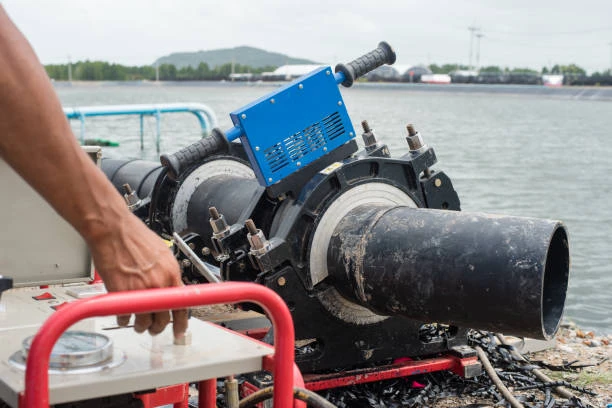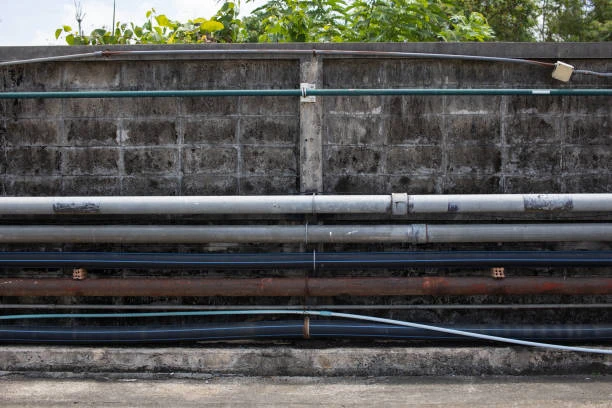In a significant development in the plastic manufacturing sector, Mexichem has acquired Dura-Line Corp, a key player in the production of high-density polyethylene HDPE pipe extruders. This strategic acquisition not only strengthens Mexichem’s portfolio but also has far-reaching implications for the industry, particularly concerning the use of pipe press fittings in various applications. As we delve deeper into this topic, we will explore the benefits of HDPE pipe, the role of pipe press fittings, and the broader impact of this acquisition on the market.
Understanding HDPE Pipes
High-density polyethylene (HDPE) pipes are widely recognize for their durability and versatility. They are manufacture using a thermoplastic polymer, making them suitable for a range of applications, including water distribution, sewage systems, and industrial processes. The seamless nature of HDPE pipes allows them to withstand high pressures and resist corrosion, making them an ideal choice for many infrastructure projects.
Key Benefits of HDPE Pipes
- Durability: HDPE pipes are know for their long lifespan, often exceeding 50 years with minimal maintenance.
- Flexibility: The flexibility of HDPE allows for easier installation, especially in challenging terrains or tight spaces.
- Chemical Resistance: HDPE is resistant to many chemicals, making it suitable for various applications, including agricultural and industrial uses.
- Lightweight: Compared to traditional materials like metal or concrete, HDPE pipes are much lighter, reducing transportation costs and installation challenges.
- Recyclability: HDPE is 100% recyclable, aligning with global sustainability goals and reducing environmental impact.
The Role of Pipe Press Fittings
Pipe press fittings are essential components in the installation of HDPE pipe systems. They provide a secure, leak-proof connection between pipes, enhancing overall system integrity and efficiency. Unlike traditional methods that rely on welding or threading, press fittings allow for quicker installations, significantly reducing labor costs and project timelines.
Advantages of Pipe Press Fittings
- Speed of Installation: Press fittings can be installe rapidly, allowing projects to move forward without delays.
- Leak-Proof Connections: The design of pipe press fittings ensures that joints are secure and leak-free, reducing the risk of water loss and environmental contamination.
- Cost-Effectiveness: With faster installation times and fewer materials needed for connections, pipe press fittings contribute to overall project cost savings.
- Versatility: They can be use with various pipe materials, making them suitable for a wide range of applications.
- Reduced Labor Requirements: The simplicity of using press fittings requires less specialized labor, further reducing costs.
The Acquisition of Dura-Line Corp
The acquisition of Dura-Line Corp by Mexichem represents a strategic move to enhance production capabilities and broaden market reach. Dura-Line is well-known for its innovative HDPE pipe extruding technology, which will complement Mexichem’s existing operations. This merger will enable Mexichem to provide a more comprehensive range of products, particularly in the realm of pipe press fittings.
Strategic Implications
- Increased Production Capacity: By integrating Dura-Line’s technology and facilities, Mexichem will significantly boost its production capabilities, meeting the growing demand for HDPE pipes.
- Enhanced Product Offering: The combination of Mexichem’s existing product lines with Dura-Line’s advanced technology will create a more robust portfolio, catering to various market segments.
- Market Expansion: This acquisition positions Mexichem to explore new markets and applications, particularly in infrastructure projects where reliable HDPE solutions are increasingly sought after.
- Research and Development: The collaboration is expecte to foster innovation, leading to the development of new products that enhance the performance and functionality of HDPE pipes and fittings.
Market Impact of the Acquisition
The implications of Mexichem’s acquisition of Dura-Line extend beyond the companies themselves; they ripple through the entire industry. The increased production capacity and advanced technology will likely lead to more competitive pricing, benefiting consumers and contractors alike.

Effects on Pricing
As Mexichem ramps up production, economies of scale may lead to lower costs for HDPE pipes and fittings. This price reduction can make HDPE solutions more accessible, encouraging wider adoption in various applications.
Competition and Innovation
The acquisition is likely to stimulate competition in the market, pushing other manufacturers to innovate and improve their offerings. As Mexichem leads with advanced technology and efficient production processes, competitors may respond by enhancing their product lines, ultimately benefiting consumers.
Environmental Considerations
In an era where sustainability is paramount, the shift towards HDPE pipes and fittings aligns with environmental goals. HDPE is not only recyclable but also contributes to reducing carbon footprints in infrastructure projects. The production processes involved in manufacturing HDPE pipes are typically less energy-intensive compare to traditional materials, further supporting eco-friendly initiatives.
Sustainability Goals
The integration of Dura-Line’s technology will allow Mexichem to improve the sustainability of its products. By focusing on environmentally friendly practices, such as reducing waste during manufacturing and promoting the recyclability of HDPE.
Future Prospects
The future of HDPE pipes and pipe press fittings appears bright, particularly with the backing of Mexichem and Dura-Line. As infrastructure projects continue to grow globally, the demand for reliable, efficient, and sustainable piping solutions will only increase.
Innovations on the Horizon
With a strong focus on research and development, Mexichem is pois to explore innovative applications for HDPE technology. Potential advancements may include smart pipe systems equipped with sensors to monitor performance, leading to more efficient water management and leak detection.
Global Market Trends
The growing trend toward urbanization and infrastructure modernization presents a significant opportunity for HDPE pipes. As cities expand and aging infrastructure requires upgrades, the demand for durable, cost-effective, and sustainable piping solutions will drive market growth.
Conclusion
The acquisition of Dura-Line Corp by Mexichem marks a pivotal moment in the HDPE pipe manufacturing industry. By enhancing production capabilities and expanding their product offerings, Mexichem is well-positione to meet the increasing demand for reliable pipe press fittings and HDPE solutions. As the industry evolves,.
FAQs
- What are pipe press fittings? Pipe press fittings are connectors that join pipes without welding, ensuring quick and reliable connections that are leak-proof.
- Why are HDPE pipes beneficial? HDPE pipes are durable, flexible, lightweight, and resistant to chemicals, making them ideal for various applications, including water and sewage systems.
- How does Mexichem’s acquisition of Dura-Line affect the market? The acquisition increases production capacity, enhances product offerings.
- What environmental benefits do HDPE pipes offer? HDPE pipes are 100% recyclable, have a lower carbon footprint in production, and contribute to sustainable infrastructure practices.
- What future innovations can we expect in HDPE technology? Innovations may include smart pipe systems with monitoring capabilities, enhancing performance, leak detection, .


















